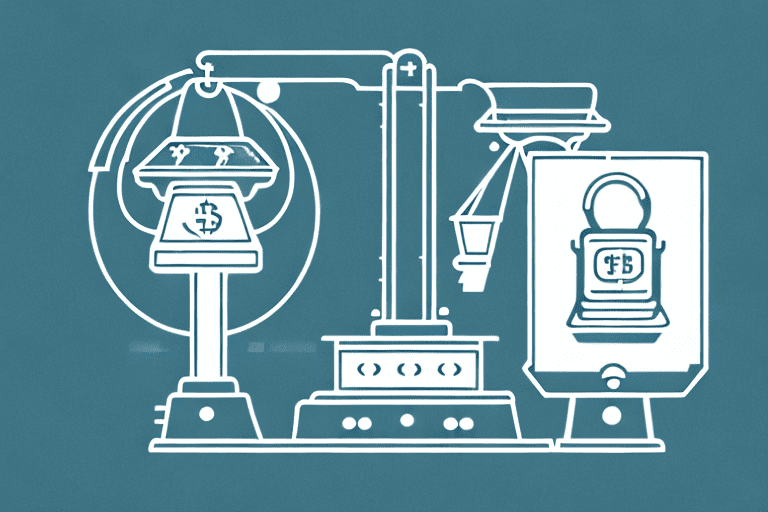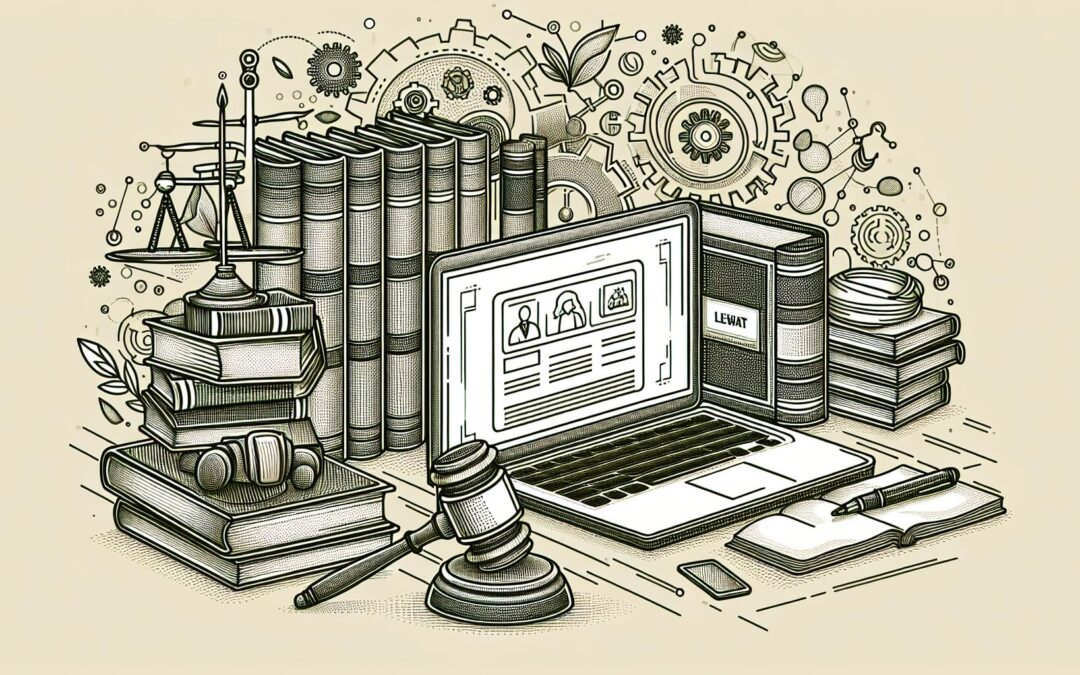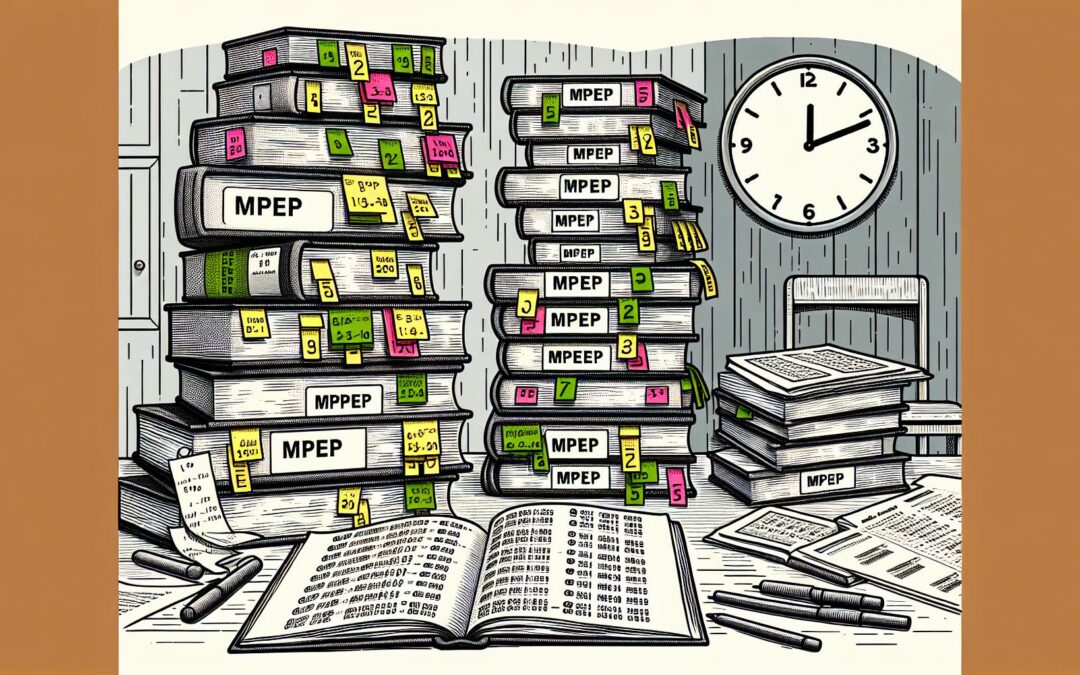In the field of patent law, it is essential to understand the various concepts and terms that come into play when it comes to protecting intellectual property. Two such terms that are often discussed are the “shop right” and the “license.” While they may sound similar, there are distinct differences between them. Let’s delve into the world of patent law and explore the nuances of these terms.
Understanding Patent Law
Before we delve into the differences between a “shop right” and a “license” in patent law, it’s important to have a solid grasp of the basics of this legal framework. Patent law grants inventors exclusive rights over their inventions, ensuring that they have the opportunity to profit from their creation and prevent others from using or profiting from it without their permission.
These exclusive rights are granted by the government and provide inventors with legal protection for their inventions. Patent law plays a crucial role in fostering innovation, as it incentivizes inventors to continue pushing the boundaries and developing new technologies.
The Basics of Patent Law
At its core, patent law aims to protect inventions. To be eligible for patent protection, an invention must fulfill certain criteria. It must be novel, meaning it is new and has not been disclosed or used before. The invention must also be non-obvious, meaning that it is not an obvious improvement on existing technology. Finally, the invention must have utility, meaning it must have a useful purpose.
Once a patent is granted, the inventor has exclusive rights over the invention for a specified period. During this time, others are prohibited from making, using, selling, or importing the patented invention without the inventor’s permission.
Importance of Patent Law in Business
Patents have a significant impact on business, particularly in industries that rely heavily on innovation and technological advancements. By protecting inventions, patents enable companies to recoup their investment in research and development and have a competitive advantage in the market.
Furthermore, patents serve as valuable assets that can be licensed or sold, generating revenue for inventors and companies. They also act as a deterrent, preventing others from infringing upon patented technologies and potentially causing financial harm to inventors and businesses.
Moreover, patent law promotes collaboration and knowledge sharing. When inventors disclose their inventions in patent applications, the information becomes publicly available. This allows other inventors and researchers to build upon existing knowledge, leading to further advancements in technology and innovation.
In addition, patent law helps foster a culture of innovation by providing a legal framework that encourages inventors to disclose their inventions in exchange for exclusive rights. This disclosure requirement ensures that the knowledge and progress made by inventors are shared with the public, even after the patent term expires. This way, society as a whole benefits from the advancements made in various fields.
Furthermore, patent law plays a vital role in international trade. Patents provide inventors and businesses with the opportunity to protect their inventions in foreign markets, expanding their reach and potential customer base. This protection encourages cross-border collaborations and investments, driving global innovation and economic growth.
Additionally, patent law contributes to job creation and economic development. Companies that hold patents often invest in manufacturing facilities, research and development centers, and hire skilled professionals to further develop and commercialize their inventions. This investment not only creates employment opportunities but also stimulates economic growth in the form of increased productivity and technological progress.
Lastly, patent law helps maintain a fair and competitive marketplace. By granting exclusive rights to inventors, patents prevent others from unfairly capitalizing on someone else’s innovation. This ensures that inventors and businesses are rewarded for their efforts, encouraging them to continue investing in research and development, and driving further advancements in technology.
Defining “Shop Right” in Patent Law
Now that we have a solid understanding of patent law, let’s turn our attention to the concept of a “shop right.” A shop right is a legal doctrine that allows certain employees to use their employer’s patented invention as part of their job duties, even without the explicit permission of the employer.
Origin and Legal Basis of Shop Right
The concept of a shop right originated from the principle of fairness and equity. In certain situations, employees who contribute to the creation or development of an invention can argue that they have a right to use that invention during their employment.
Shop rights are typically based on state laws and may vary depending on the jurisdiction. The legal basis for a shop right is often rooted in the notion that employees who actively participate in the creation of an invention should be allowed to reap the benefits of their contributions.
For example, in the landmark case of Westinghouse Electric & Manufacturing Co. v. Wagner Electric & Manufacturing Co., the court recognized the shop right doctrine as a means to strike a balance between the rights of the employer and the rights of the employee. The court held that employees who contribute to the development of an invention should be able to use that invention within the scope of their employment.
Characteristics of a Shop Right
A shop right grants employees the limited right to use their employer’s patented invention solely for work-related purposes. It is important to note that a shop right does not confer ownership or control of the invention upon the employee. Instead, it simply allows them to utilize the invention within the scope of their employment.
Furthermore, a shop right is typically non-transferable, meaning that it cannot be assigned or sold to another party. The right is specific to the employee and cannot be transferred to a different employer or individual.
Additionally, employees with a shop right do not have the authority to grant licenses or sublicense the invention to third parties. The shop right is specific to their employment and does not extend beyond their relationship with the employer.
In some cases, the scope of a shop right may be limited to a particular field or industry. For example, if an employee contributes to the development of a pharmaceutical invention, their shop right may only extend to the use of that invention within the pharmaceutical industry.
Practical Examples of Shop Right
To gain a clearer understanding of how a shop right operates in practice, let’s consider a hypothetical scenario. Imagine a software engineer working for a technology company who develops a new algorithm while on the job. If the algorithm is patented by the employer, the software engineer would have a shop right to use the algorithm as part of their work duties.
This shop right would enable the software engineer to continue using the algorithm without fear of infringing on the employer’s patent rights. However, it is important to emphasize that the shop right is limited to the employee’s job responsibilities and does not grant any additional rights or ownership over the invention.
Furthermore, the shop right may be subject to certain conditions or limitations. For instance, the employer may require the employee to keep the invention confidential or to disclose any improvements or modifications made to the invention during their employment.
In another example, let’s consider a research scientist employed by a pharmaceutical company. If the scientist contributes to the development of a new drug formulation that is patented by the company, they would have a shop right to use the formulation in their research and development activities.
This shop right would allow the scientist to continue working on the formulation without the need to seek explicit permission from the employer. However, the shop right would not grant the scientist the authority to sell or distribute the formulation outside of the company’s operations.
In conclusion, a shop right is a valuable legal doctrine that balances the interests of employers and employees in the field of patent law. It allows employees who contribute to the creation or development of an invention to use that invention within the scope of their employment, ensuring fairness and equity in the workplace.
Exploring the Concept of “License” in Patent Law
Now that we have examined the intricacies of a shop right, let’s move on to understanding the concept of a “license” in patent law. A license grants permission to a third party to use, manufacture, sell, or distribute an invention that is protected by a patent.
Definition and Legal Framework of License
A patent license is an agreement between the patent owner and the licensee, outlining the terms and conditions for using the patented invention. It is a legally binding document that governs the rights and obligations of both parties.
License agreements can be negotiated and customized to meet the specific needs of the patent owner and the licensee. They typically detail the scope of the license, any restrictions or limitations on its use, and the financial arrangements, such as royalties or upfront fees, associated with the license.
Different Types of Patent Licenses
Patent licenses come in various forms, depending on the rights granted and the scope of the license. Some licenses may be exclusive, meaning the patent owner grants the licensee exclusive rights to use the patented invention. Other licenses may be non-exclusive, allowing the patent owner to grant similar licenses to multiple parties.
Additionally, licenses can be limited in scope to a particular geographic region or industry. Cross-licenses, where multiple companies exchange patent rights, are also common in certain industries to facilitate innovation and avoid costly infringement disputes.
Real-world Applications of Patent Licensing
Patent licensing plays a vital role in the commercialization of patented technologies. It allows inventors and businesses to monetize their inventions by granting others the right to use them in exchange for financial compensation.
In some cases, larger companies may choose to license patented technologies from smaller inventors or start-ups, enabling them to incorporate those innovations into their products or services. Conversely, inventors or smaller companies may license their technologies to larger companies for wider distribution and market reach.
Furthermore, patent licensing can facilitate collaboration and collective innovation, as companies often enter into licensing agreements to combine their technologies and create new products or services.
Key Differences between a Shop Right and a License
Now that we have a comprehensive understanding of both a shop right and a license in patent law, let’s highlight the key differences between these two concepts.
Ownership and Control Differences
One of the primary differences between a shop right and a license lies in the ownership and control of the patented invention. With a shop right, the employee does not gain ownership or control over the invention; they simply have the right to use it within the scope of their employment. In contrast, a license grants the licensee permission to use and potentially profit from the invention.
Duration and Scope of Rights
The duration and scope of rights also differ between a shop right and a license. A shop right is typically tied to the employment relationship and ceases to exist once the employment ends. On the other hand, a license can be granted for a specific period, such as a set number of years, or for the life of the patent. Additionally, licenses can encompass broader rights, allowing the licensee to use the invention in various ways beyond their immediate job responsibilities.
Financial Implications
Financial implications vary between a shop right and a license. A shop right does not involve any financial transactions, as it is an inherent right granted to the employee as part of their employment. In contrast, a license typically involves financial arrangements, such as royalties or upfront fees, as compensation for the use of the invention.
By understanding the nuances of these differences, inventors, employees, and businesses can navigate the intricacies of patent law more effectively. Whether you are an inventor seeking to protect your invention or an employee exploring your rights, having a clear understanding of the distinctions between shop rights and licenses is crucial.+









